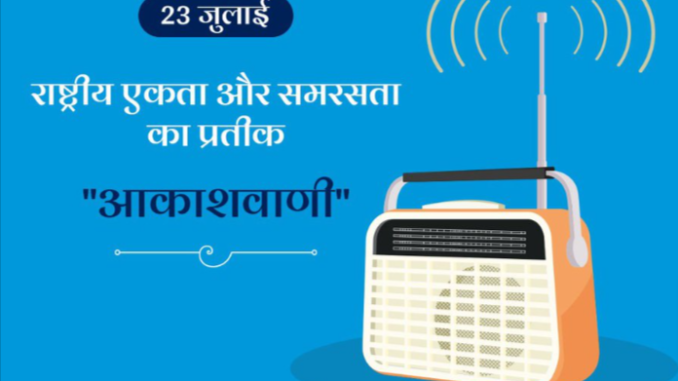
Every year on July 23, India celebrates National Broadcasting Day to commemorate the first radio broadcast in India from the Bombay Station under the Indian Broadcasting Company in 1927.
Radio broadcasting services started in India during British rule in 1923 under the initiative of the Radio Club of Bombay. In 1927, the Indian Broadcasting Company (IBC) was made a private entity and granted permission to operate two radio stations. IBC went into liquidation on 1 March 1930, following which the government took over the broadcasting facilities and started the Indian State Broadcasting Service (ISBS) on 1 April 1930 on an experimental basis for two years.
Eventually in June 1936, it became All India Radio. At the time of independence from the British Raj, there were a total of six radio stations – Delhi, Calcutta, Madras, Bombay, Tiruchirapalli, and Lucknow. FM broadcasting started later, almost 30 years later on 23 July 1977 in Chennai.
Since 1956, All India Radio (AIR) has been known as Akashvani. In terms of the number of languages broadcasted through it, AIR is the world’s largest radio network.
AIR now comprises 420 stations across the country, reaching nearly 92% of the area and 99% of the total population. AIR is owned by Prasar Bharti, which is a statutory autonomous body set up by an Act of parliament and besides AIR, it comprises Doordarshan Television Network and Prasar Bharati News Services.
